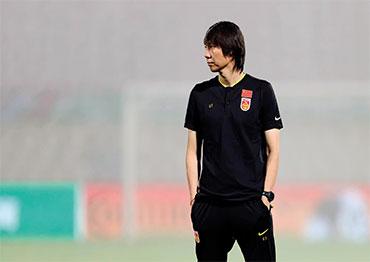According to Zhuang Deshui, deputy director of the Research Center for Government Integrity-Building at Peking University, the widespread corruption in Chinese professional soccer results from the enormous investment poured into the sport, combined with institutional flaws in the administrative system.
Following the last round of massive anti-graft probes in early 2011, pro soccer in China entered what many called the “money talks” era, as major real estate developers, spearheaded by China Evergrande Group, one of the country’s biggest developers, started to sponsor and develop teams.
Aiming not to make profits but to promote their brand recognition and reputation among soccer fans, the real-estate giants that emerged from China’s booming property market could afford this lavish spending.
Between 2011 and 2019, Guangzhou Evergrande won eight Chinese Super League titles and two Asian Champions League titles. Other real estate developers soon followed suit. Both Hebei China Fortune and Wuhan Zall, for which Li Tie served as head coach, are financed by real estate developers, China Fortune Land Development and Wuhan Zall City Investment and Development Company.
Initially, real estate developers were welcomed. Many believed that more investment would not only help attract world-class players to the CSL, which would elevate the overall competitiveness of China’s professional soccer, but it would also provide much-needed funds to nurture gifted youth players.
Now the consensus is that the strategy backfired spectacularly. While the hot money brought by real estate developers allowed Chinese football clubs to recruit first-tier players from all over the world, it also led to an inflation of earnings and transfer fees of domestic players given the limits on foreign players each club can hire. Although the rules often changed, clubs were limited to playing three, four or five foreign players in each game.
For example, when Zhang Chengdeng, a member of China’s national team, was transferred from Beijing Guoan to Hebei China Fortune in 2017, the transfer fee was 150 million yuan (US$22.2m). In sharp contrast, Zhang’s transfer value in the European market was only about 475,000 euros (US$506,629).
According to an estimate made by the CFA in December 2020, the average salary of first-tier players in the Chinese Super League was 5.8 times of their Japanese counterparts and 11.7 times of their South Korean ones.
While Japan and South Korea strive to send their players to Europe’s elite competitions, widely recognized as the most effective way to elevate the competitiveness of a country’s national team, the inflation of salaries in China had the opposite effect as several Chinese who were playing overseas opted to return to China as they could earn much more back at home.
With the downfall of Li and others, it has become clear how this hot money turned the sport into a breeding ground for corruption. “If the authorities conduct a full-scale investigation into Li’s case, it could cause an earthquake as many more would be implicated,” Li Pingkang said.
The “money-talks” era also ended with the recent collapse of China’s property market. Many real estate developers, including Evergrande, found themselves in serious debt crises while their soccer clubs struggled to survive.
On November 1, 2021, Hebei FC, owned by the now debt-ridden property developer China Fortune Land Development, ceased operations. As the 2022 season of the CSL wrapped up on December 27, 2022, Guangzhou FC, formerly Guangzhou Evergrande FC, was relegated.
On January 25, 2023, Wuhan FC declared it was disbanding, quitting the league and was settling salary payments with all its coaches and players except “a certain coach and players he brought to the team, foreign players and players who broke the team’s rules.”
As the investigations have finally reached the governing body of Chinese soccer, many Chinese fans are holding onto hopes that the anti-corruption investigations will help reboot Chinese soccer and save China’s decades-long soccer dream.

 Old Version
Old Version

